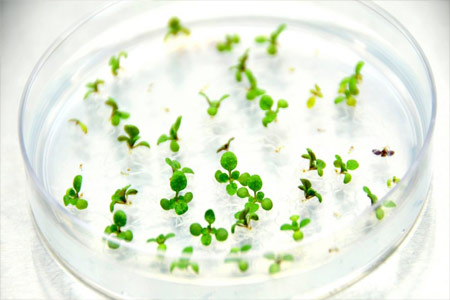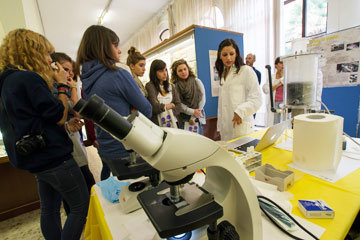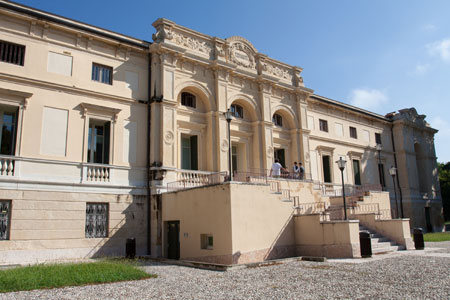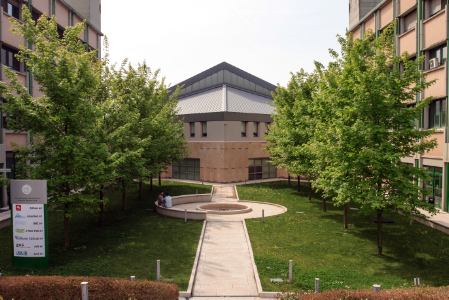Preliminary experiments from our lab show that, when grown as monolayers and as three-dimensional cultures (spheroids), T47D human breast carcinoma cells react to biochemical (VEGF deprivation), chemical (PEG) and physical (ionizing radiation) stimuli by tuning their proliferation and migration potential. They also show that it is possible to study the underlying molecular mechanisms under controlled conditions, and find out specific molecular targets to hit in order to block the cells in a long-lasting quiescent state. Slowing down the aggressiveness of solid tumors would substantially boost the clinical management of the disease.
VEGF delivers stimuli to cells that are processed intracellularly. PEG and ionizing radiation are stimuli that induce T47D cells to reversibly fuse together. When fused, the cells do not proliferate or migrate until they can split and divide again. The underlying molecular mechanisms are unknown but they likely involve biochemical regulation pathways. The aims of the project are:
• to study and understand the molecular pathways underlying the response of T47D cells to VEGF, PEG and radiation by comparing the gene expression profiles of treated and untreated cells
• to adapt multidimensional flow cytometry methods for single cell profiling (SCP) to cells from solid tumors and use them to study the dynamics of signal transduction pathways at the protein level
• to study whether the findings can be generalized to other cell types of breast carcinoma.
SCP methods by flow cytometry have successfully been used to stratify leukemia patients into different prognostic groups. By adapting the experimental conditions to investigate the molecular pathways with breast carcinoma cells, we will possibly open a new road towards the classification of patients into different risk groups even in the case of solid
tumors.







